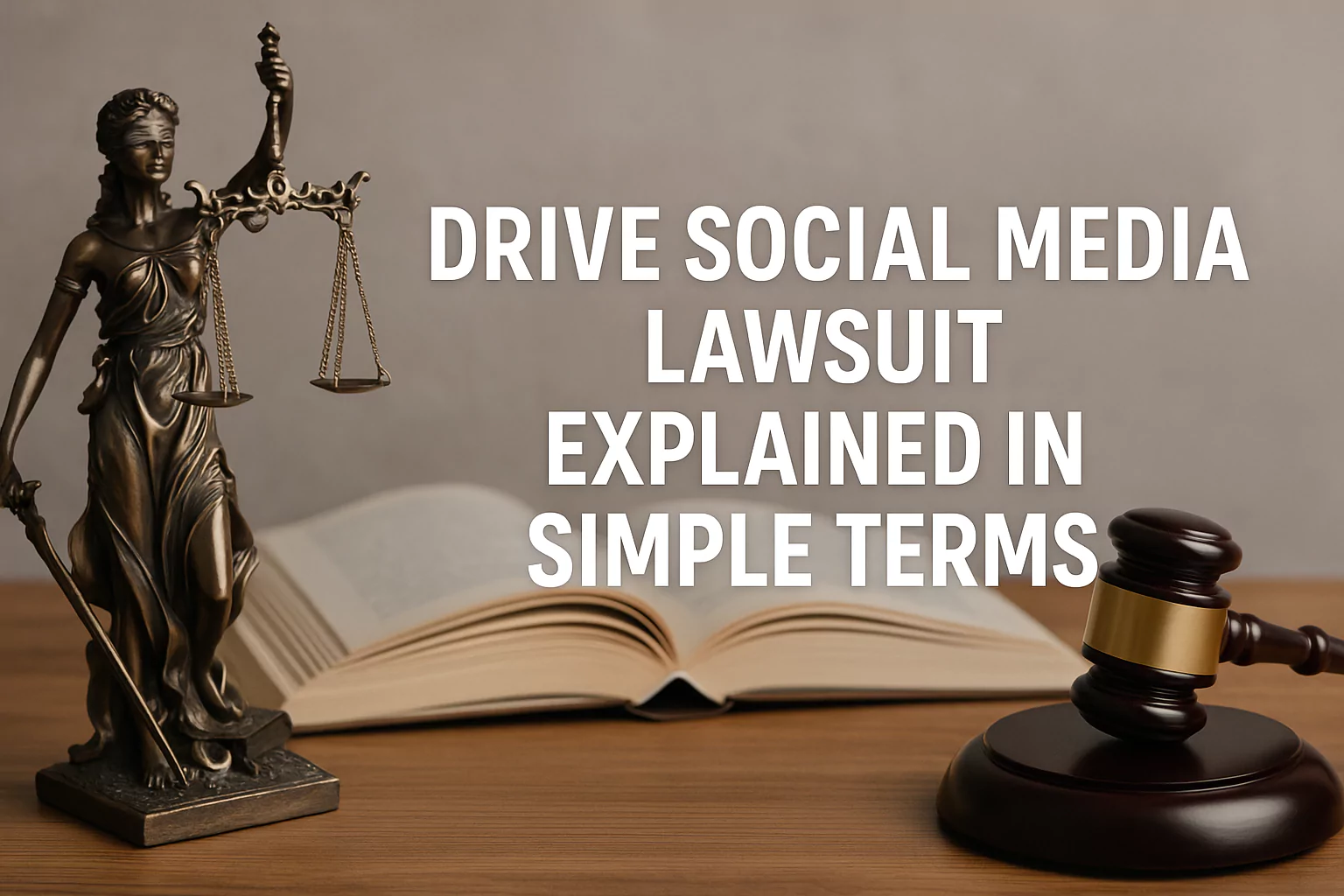Drive Social Media Lawsuit: Key Info You Can’t Ignore

The Drive Social Media lawsuit revolves around allegations of misleading business practices and breach of contract by the marketing agency, Drive Social Media. Clients and former employees have claimed that the company failed to deliver on promised services, exaggerated marketing capabilities, and potentially violated consumer protection laws. If you’re a business owner, marketer, or potential client, understanding the details of this case is essential to avoid legal pitfalls and make informed decisions.
Who Is Drive Social Media?
Drive Social Media is a full-service marketing agency headquartered in St. Louis, Missouri, with other locations including Nashville and Miami. It offers services such as digital advertising, social media marketing, branding, and content creation. Known for aggressive sales strategies and promising high returns on investment (ROI), the company has garnered both praise and criticism in the digital marketing space.
Overview of the Lawsuit
1. Allegations Against Drive Social Media
The core issues brought forward in the lawsuit include:
- Misrepresentation of Services: Clients allege that Drive Social Media overstated the success of their marketing strategies and manipulated metrics to appear more effective.
- Breach of Contract: Some businesses claim that Drive did not deliver the promised number or quality of leads, failing to meet contractual obligations.
- Aggressive Sales Tactics: Accusations also focus on the company’s allegedly high-pressure sales methods, leading clients to sign long-term contracts without adequate information.
2. Who Filed the Lawsuit?
The legal action includes multiple parties. Several small business owners and former clients are part of a class action or individual lawsuits, while some former employees have provided testimonies highlighting unethical practices within the company.
3. Legal Grounds
The plaintiffs in these lawsuits are primarily pursuing claims under:
- State Consumer Protection Laws
- Fraud and Misrepresentation
- Unjust Enrichment
- Breach of Implied Good Faith and Fair Dealing
Impact on Clients and Businesses
Why This Matters to You
If you are considering hiring a marketing firm, the Drive Social Media lawsuit should act as a cautionary tale. Key takeaways include:
- Thoroughly vet your agency: Always request performance metrics, speak to past clients, and ensure transparency.
- Understand the contract terms: Know what deliverables are promised and what constitutes a breach.
- Look beyond flashy pitches: A slick presentation does not guarantee results. Check for third-party validation, not just internal case studies.
How Drive Social Media Responded
The company has publicly denied any wrongdoing. In official statements, Drive Social Media maintains that they deliver results and honor their contractual agreements. They attribute the lawsuits to client dissatisfaction based on misaligned expectations or lack of cooperation in executing marketing strategies.
Additionally, Drive has suggested that some negative claims are from competitors or disgruntled clients with unreasonable demands. The company has not been found guilty as of the latest updates, and investigations are ongoing.
Legal and Industry Repercussions
This case is being closely watched within the digital marketing industry for several reasons:
- Sets a precedent: Agencies may face tighter scrutiny and regulation regarding their claims and advertising promises.
- Emphasizes accountability: Marketing firms may need to standardize how they measure ROI and report campaign success.
- Potential new regulations: States may adopt stricter consumer protection laws for marketing services if such cases become more common.
How to Protect Yourself from Similar Situations
Here are a few smart strategies for businesses working with marketing agencies:
- Request KPIs upfront: Know what key performance indicators (KPIs) will be tracked and how success will be measured.
- Negotiate flexible contracts: Avoid long-term commitments until you’re confident in the agency’s capabilities.
- Check for third-party reviews: Rely on Google, Better Business Bureau (BBB), and client testimonials—be wary of agencies with numerous unresolved complaints.
- Retain legal counsel: Before signing any marketing agreement, it’s advisable to have a legal expert review the terms.
Public Reaction and Media Coverage
The Drive Social Media lawsuit has received considerable media attention, especially in St. Louis business news and legal blogs. Social media users have also weighed in, with mixed reactions. Some defend the agency’s creativity and results, while others share similar negative experiences. The growing awareness has sparked debates on ethical marketing and agency transparency.
What Comes Next?
As of now, the lawsuits against Drive Social Media are in various stages. Some may be settled out of court, while others could proceed to trial. The outcomes could shape how agencies operate, especially in client communications, performance guarantees, and contract transparency.
For clients, marketers, and industry observers, this case is a crucial reminder: marketing isn’t just about results—it’s also about trust, transparency, and accountability.
Conclusion
The Drive Social Media lawsuit underscores the importance of clear communication, contractual fairness, and ethical practices in digital marketing. Whether you’re a potential client or a marketing professional, the case serves as a strong warning: always do your due diligence before entering a business relationship. Lawsuits like this remind us that in the world of marketing, integrity matters as much as innovation.









